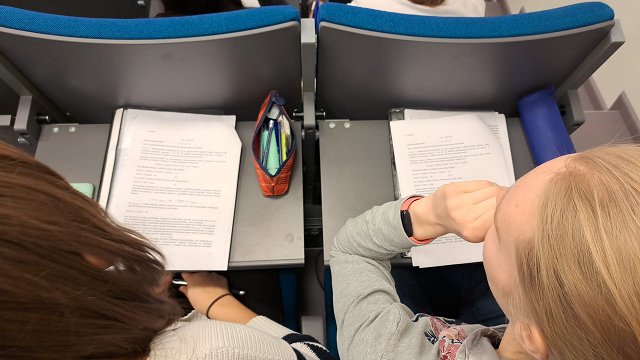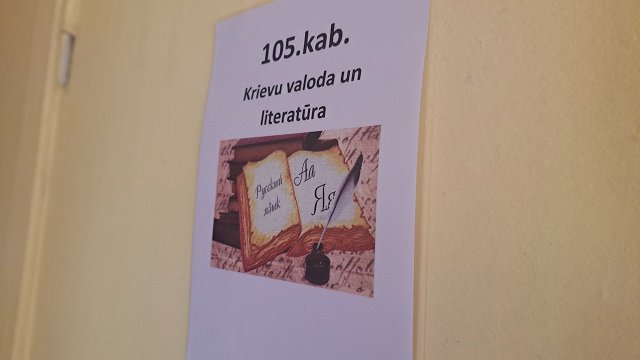A gymnasium teacher in Kurzeme, who wants to remain anonymous, had instructed his students to watch a specific film at home and to write a short review in less than 300 characters. Looking at the homework received, a pupil's work had drawn his attention with the syntax.
“Sometimes pupils – I would even say, quite often – have very bad language, and many anglicisms are used, but in this case, the anglicisms were very bright. The sentence structure was English, too,” the teacher said.
The student had explained that he was used to thinking in English, so he had first written the review in English and then translated it into Latvian. The teacher suspected that the student had found a ready-made review on the Internet and translated it, but there was no source text in the plagiarism test. As he continued his search, the teacher came to the conclusion that some artificial intelligence tool had been used.
The student then replied he wasn't planning to stay in Latvia so he did not need to be able to speak Latvian clearly.
Another teacher in Jelgava State Gymnasium had received four AI-generated submissions at once.
"The essays came with extremely bureaucratic words, like words pulled out of some regulatory documents. And very boring. And the sentence designs were simply fantastic, where it was difficult to understand the beginning of the sentence and the end of the sentence," said Gunita Butāne, a Latvian language and literature teacher.
All four students confessed to using artificial intelligence. The teacher asked to write the essay a second time. This time, pen on paper.
"A lot of teachers complain that children's handwritings are hard to read. I, in my opinion, tolerant to technology, allowed them to use computers to write their essays. Our school now has Chrome computers available, purchased in public procurement," Butāne said.
The tendency to do homework with artificial Internet tools will expand, but this does not mean that these tools should be banned, believes Sigulda State Gymnasium principal, President of the Latvian Association of Education Leaders Rūdolfs Kalvāns.
“I ask colleagues to be as positively witty in developing advanced evaluation systems, for example, in cases where this situation has emerged or when pupils show an interest in using this resource, for example, you can raise the bar by multiplying every mistake found in an artificial intelligence-based text by three, for example,” Kalvāns proposed.
He believes that, at the beginning of the next school year, the management of each school in a given school institution will come up with rules on how artificial intelligence is allowed to be used in teaching work, but centralized restrictions are not necessary in his view.
Artificial intelligence tools have led to confusion in school and university systems around the world; headlines in the media foretell not only the end of thought but even creativity. The philosopher and publicist Artis Svece agrees that artificial intelligence can really replace many skills, but not all, for example, it lacks a personal touch, a message of its own experience. The software also tends to be wrong.
“Artificial intelligence makes mistakes. It gets so-called hallucinations when the program writes incoherent text, or sometimes even refers to nonexistent books, and a person experienced in that field can recognize it,” said Svece.





























